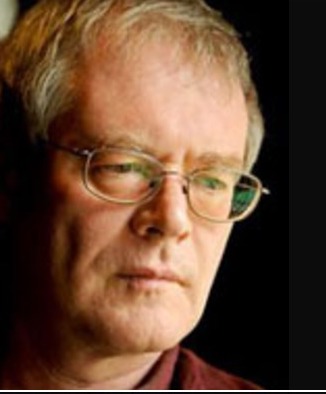GoodReads meta-data is 456 pages rated 4.08 by 40870!
Genre: period Krimi.
Verdict: Grim.

In 1535 King Henry VIII’s war with the Pope is in full swing. Roman religious institutions are being investigated to ensure that they have converted to the New Way(s), their treasures registered, taxed, confiscated, and carted off. While a few monasteries were licensed to continue, most are being closed, putting monks, abbots, brothers into the cold of an English winter. Ditto for nuns.
It is a world of informers where a loose word would reveal a residual Catholicism and be met with the axe. Priest holes are becoming a real estate feature. Priest hunters are getting advanced degrees. It is all brutal, violent, and merciless in the name of the Lord. Some things never change.
Among the monasteries on the list is Scarnsea on the south coast. First minister Thomas Cromwell sent a commissioner to close it, and – gulp! – he is murdered. In the dark of night. Murdered, yes, but worse. Decapitated! The punishment for treason! There is much discussion of this procedure which in the end — Spoiler — is undermined by the plot denouncement.
In response Cromwell sends his number one trouble shooter, Matthew Shardlake to (1) to bring justice to the murderer and (2) to speed the dissolution of the monastery. Shardlake may be the number one confidant, but even so Cromwell puts marbles under his feet to keep him uncertain.
Added to that brew, Shardlake is a hunchback, an affliction many see as a sign of the Beast. His career as a lawyer is owed entirely to Cromwell and he cannot risk failure in this assignment. He takes along an acolyte to do the stepping and fetching. Shardlake spends far too much time feeling sorry for himself in his back (!) story.
The result is the monastery of Otranto with the residual population of monks, about thirty where once there were two hundred, and many servants who are ciphers, and unwanted guests who have taken shelter there. It is all gloomy, claustrophobic, clinging, freezing, and stifling. And that is reiterated on nearly every page in case it was missed the first hundred times it was said. (Aside: people who live in cold climates do not spend so much time talking about it, but rather just get on with it.)
The heavy hand of religious oppression hangs over everything. Big Brother’s many little brothers are, indeed, watching everything, everywhere. It is all rather depressing to read. While prepubescent film-makers over the years have been transfixed by Henry’s wives, most have overlooked the fact that his oppression of Catholics led to at least 50,000 executions and judicial murders, while encouraging vigilantes to do others: Thomas More was not alone. Yet Henry’s name has never become an adjective for violence and murder thanks to the marital distractions.

There is far more description of rooms, clothing, odours, and weather than adds to either plot or character and must be called padding to get to the length for airport bookshelves for long haul flights.
What I can say is that it reads easier, makes more sense, and more effectively conveys the time and place than the coterminous and vastly overrated Hilary Mantel novels.

